(MENAFN- Brazil-Arab News Agency (ANBA))
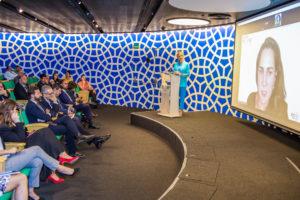
São Paulo – The participation of Brazil in the carbon market faces barriers like the low maturity of the country in the sector and regulation, but it also represents an opportunity, as the country's capacity for generating credits is huge. So said a study conducted by the International Chamber of Commerce (ICC Brasil) and consulting firm WayCarbon. The survey projects that over the next decade Brazil could supply up to 48.7% of the global demand of the sector's voluntary market and up to 28% of the global demand of the United Nations-regulated market.
The study was made public on Thursday (6) in an event at the headquarters of the Arab Brazilian Chamber of Commerce (ABCC) in São Paulo, held in partnership with ICC Brasil and attended by some 80 people. The meeting precedes the 27th UN Climate Change Conference (COP27) to be held in Egypt from November 6 to 18.
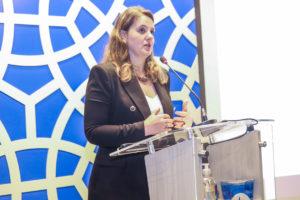
Dorlhiac: Carbon market is an important tool in transition
“The carbon market is an extremely important tool in transition that will allow countries to start setting emission reduction targets, rewards companies that have started the transition already and help companies that will have a more complex work ahead of them to do it within an acceptable period of time. The more we are able to think on tools that combine sustainability and economic feasibility, the better,” ICC Brazil executive director Gabriella Dorlhiac.
The study
WayCarbon is a consulting firm that offers climate change- and ESG-related solutions. Its Climate Change technical manager Laura Albuquerque presented the study based on the regulation of the Article 6 of the Paris Agreement defined at the COP26.
The Article 6 provides for the trading of exceeding carbon credits that result from mitigation measures for meeting the countries' targets referred to Internationally Transferred Mitigation Outcomes (ITMOs), the establishment of the Sustainable Development Mechanism (MDS) for certifying carbon credit projects, as well as funding, technology transfer, and training.
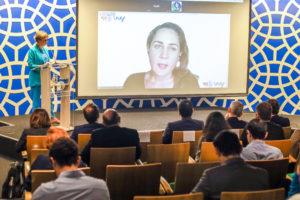
Albuquerque: Challenges and opportunities in the national carbon market
Albuquerque talked about the main challenges for operating in the national carbon market. They include market barriers, such as the high complexity of projects and low maturity of the market, technical barriers such as the low-skilled workforce and lack of proper methodologies, political barriers such as lack of credibility of government commitments and low representativeness in decision making, regulatory barriers such as legal insecurity and high legislative and tax complexity, and economic barriers such as difficulty accessing sources of funding and uncertain demand.
The opportunities for operating in the national carbon market include the internationalization of the Brazilian market, given the huge estimates of credit carbon capacity; the increased demand due to the commitment of industries to science-based goals and credit-acquisition tenders; exploration of new frontiers to be regulated worldwide. For the Brazilian government, this can mean an opportunity to furthering strategies for monitoring results.
The study proposes recommendations for the Brazilian government, including that the federal executive power develops and makes public a plan for meeting the Nationally Determined Contributions (NDCs) and zero-deforestation and carbon-reduction commitments, and that after planning for the NDC, it establishes a strategy for trading credits through the market mechanisms of the Article 6 by considering using credits of more complex projects and their potential as a credit supplier of Nature-Based Solutions (NBCs).
It also recommends the participation of the Interministerial Committee on Climate Change and Green Growth in the discussions of the carbon market; encouraging and supporting the development of methodologies that take into account the country's climate reality; putting forth clear definitions for the states on jurisdictional projects and implementation procedures; and investing on NBCs that are expected to ensure the most benefits for sustainability and regeneration, as well as minimizing social and environmental damages and prioritizing projects that involve forest planting.
What is the carbon market?
The global carbon market consists of trading carbon credits, which can come from reforestation projects, clean energy production and other activities, and sold to those who need to compensate for emissions, thus making their business more sustainable. A country that has cut its greenhouse gases below its targets is thus able to sell its surplus.
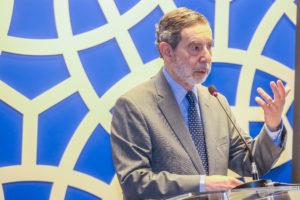
Arab Brazilian Chamber president Osmar Chohfi will participate in Egypt COP27
In Brazil, there is already a voluntary carbon market that stands out in the production of biomethane for substituting diesel, green hydrogen, and offshore wind energy.
A decree was published on May 20 to regulate the low-carbon market in the country. The document lays down procedures for drawing up sectoral plans for climate change mitigation for different sectors of the economy and establishes the National System for Reduction of Greenhouse Gas Emissions.
“The carbon market is something we must leverage not only from the economic point of view but to fast-track Brazil's environmental agenda. If we don't take advantage of this window of opportunity, we'll stay behind,” Dorlhiac said. ICC Brasil will have a pavilion at COP27.
Panel
The study presentation was followed by the panel Carbon Market in Brazil: Overview of the Current Environment and Future Scenarios , which featured Santander Sustainable Business Development superintendent Viviane Otsubo Kwon and Tauil & Chequer Climate Change and Environmental Practices partner Luiz Gustavo Bezerra, and was moderated by João Carlos Souza, senior Sustainability and Institutional Relations manager at Schneider Electric.
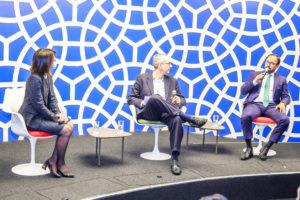
Panel presented technical aspects of the carbon market
Kwon said the biggest challenge for banks now is how to support small- and medium-sized enterprises in achieving energetic efficiency workforce training. She sees a large potential to be explored.
Bezerra talked about the establishment of a single registration for carbon credits in order to ensure traceability. It was also discussed how to put the carbon market in the agenda of the ordinary citizens and consumers and how to make these initiatives more popular to ensure there is a social impact.
“Last COP was one of commitments, and this [COP27] will be one of accountability. The companies have to look at the scope 1, 2 and 3 (direct and indirect emissions),” Bezerra said.
Arab countries
Opening the event, ABCC president Osmar Chohfi said that the fact this and next year's COP are taking place in Arab countries (Egypt and United Arab Emirates) confirms these countries' commitment to the international environmental agenda.
“According to figures provided by Mitsui & Co. Ltd, the UAE and Saudi Arabia are leading the decarbonation in the Middle East. They are also conducting several pilot projects aimed at using hydrogen as the main renewable source,” Chohfi said.
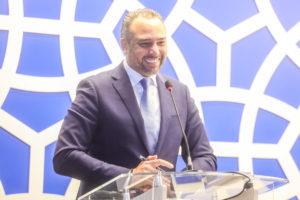
Mansour: We have in our hands the capacity, expertise and physical conditions to stand out in the global carbon market
He pointed out that the UAE and Saudi Arabia have fostered the development of decarbonation programs in Egypt, Jordan and Morocco.
ABCC CEO & secretary-general Tamer Mansour closed the event Pre-COP27: Expectations and Engagement of the Private Sector.“According to the study presented, by 2030 Brazil could supply up to 28% of the global market demand and 48.7% of the voluntary carbon market. An impressive share that is expected to bring in around USD 120 billion in revenue. We have in our hands the capacity, expertise and physical conditions to stand out in the global carbon market. These are all extremely important assets to effectively operate in the global environmental agenda,” Mansour finished.
Translated by Guilherme Miranda
Edson Lopes Jr./Arab Brazilian Chamber
Edson Lopes Jr./Arab Brazilian Chamber
Edson Lopes Jr./Arab Brazilian Chamber
Edson Lopes Jr./Arab Brazilian Chamber
Edson Lopes Jr./Arab Brazilian Chamber
Edson Lopes Jr./Arab Brazilian Chamber
The post appeared first on .

.jpg)

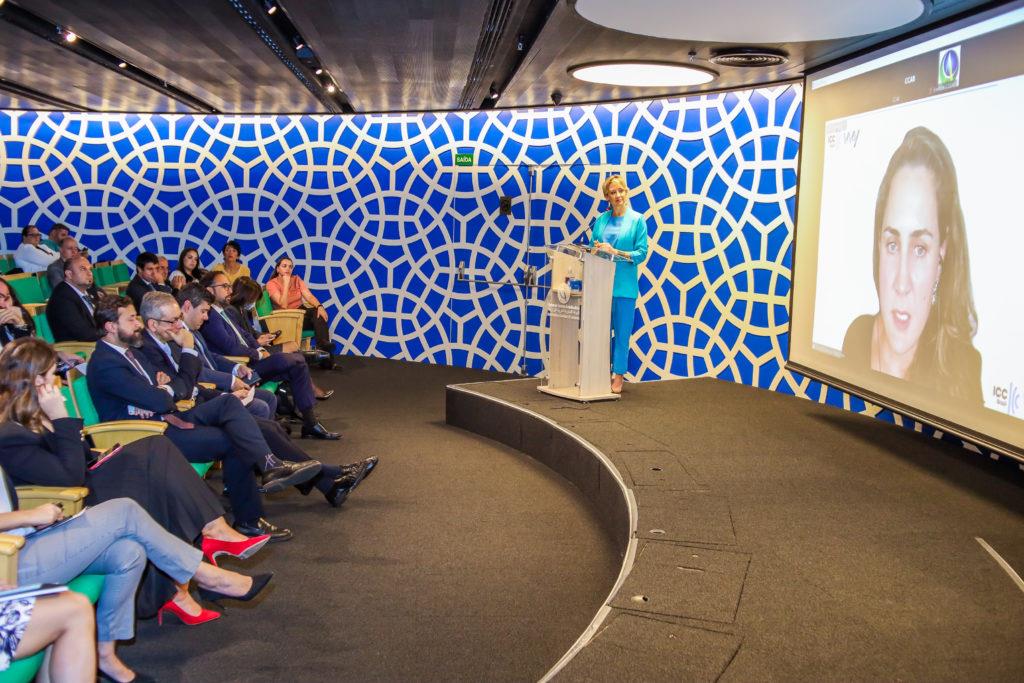






















Comments
No comment